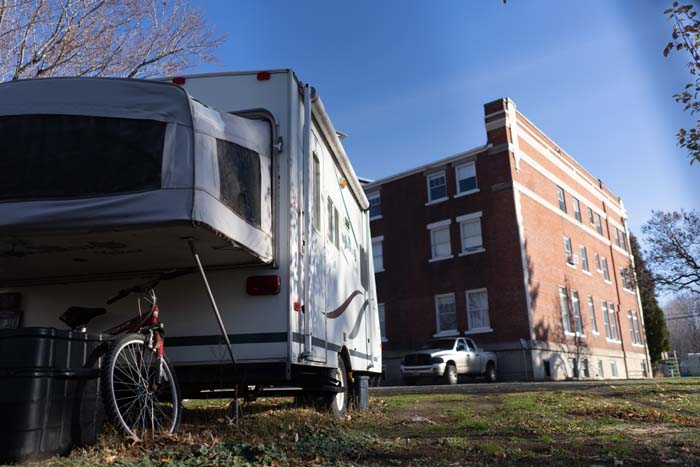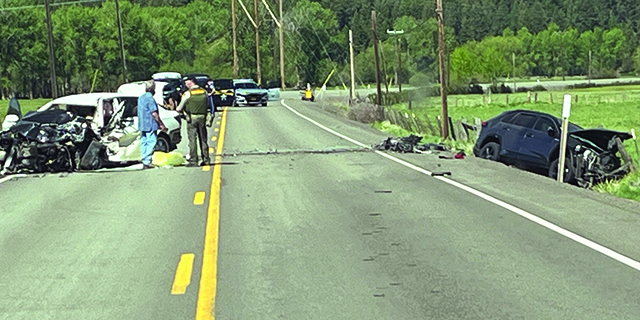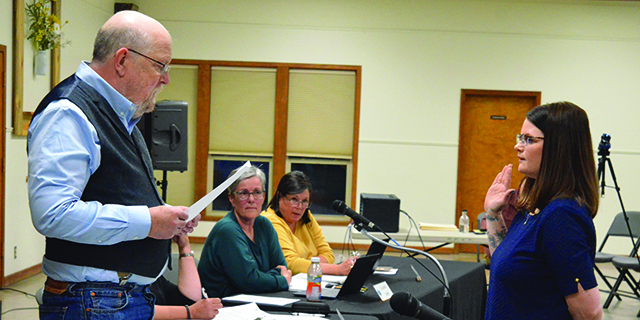Lodging tax being considered by Union City Council
Published 7:00 am Thursday, November 18, 2021

- Recreational vehicles and motor homes sit behind the Union Hotel on Wednesday, Nov. 17, 2021. A proposed tax increase for the city of Union would place a lodging tax on the hotel and the adjacent RV park. {div id=”highlighter--hover-tools” style=”display: none;”} {/div} {div id=”highlighter--hover-tools” style=”display: none;”} {/div}
UNION — A new tax may be in Union’s future.
The Union City Council is beginning to study the possibility of adding a transient lodging tax.
“We are starting to look into this,” said Union Mayor Leonard Flint.
Flint said Union, which has a population of about 2,100, is one of the few cities its size in the state that does not have a transient lodging tax.
Should the city add a lodging tax, 70% of the revenue from it would have to be spent on boosting tourism under state law, according to Doug Wiggins, Union’s city administrator. He said the money would be used for projects that could draw in tourists, including bike paths and a welcoming center.
Wiggins said the remaining 30% of the tax revenue could go to the city’s general fund. He noted though that 5% of the money must fund the collector of the tax. Union’s options would include having the state collect the tax or the city handling it.
The city council would have to pass an ordinance before it could impose a transient lodging tax, Wiggins said. The process of adopting an ordinance for the tax would include two public hearings. Wiggins said that an ordinance for the tax could be adopted by the council as early as the spring of 2022. Should this occur, the tax would probably not take effect until July 1, 2022, Wiggins said.
A city transient lodging tax does not need voter approval in Oregon unless a city’s charter states that an election is required, Wiggins said. He said Union’s charter does not stipulate such an election.
Wiggins said the reason elections are not required is that transient lodging taxes are not generally paid by people who live in a city but rather those passing through it.
A transient lodging tax applies to anywhere people are charged to stay for less than 30 days, such as hotels, recreational vehicle parks and bed-and-breakfast businesses, Wiggins said.
Presently, at least two cities in Union County have transient lodging taxes — La Grande and Elgin. In addition, everyone providing overnight lodging in Union County must pay a 3% county transient room tax and a state transient room tax. The state tax is 1.5%, according to the Oregon Department of Revenue’s website.
Charlie Morden, the owner of the Union Hotel and an RV park next to it, does not believe there would be an outcry against a city transient lodging tax.
“Taxing people who do not live in Union would be an easy sell,” he said.
Morden noted that the county and state transient room taxes already in place perplexes some of those coming to the Union Hotel.
“They say, ‘I thought Oregon did not have a sales tax.’ It confuses them,” he said. The hotel owner said a city lodging tax wouldn’t have a big impact on his business — if it is kept low.
“A tax of 1-2% probably would not affect business much at all,” he said.
Morden fears, though, that a lodging tax that starts small could over time get much bigger and could have “unintended consequences.”
If the taxes were to get too high, he said, he might have to turn the Union Hotel into an apartment complex to avoid paying transient lodging taxes, and this would reduce the options of places to stay in town for those who come to play golf at Buffalo Peak Golf Course, for example, which would hurt other local businesses offering services to visitors.





